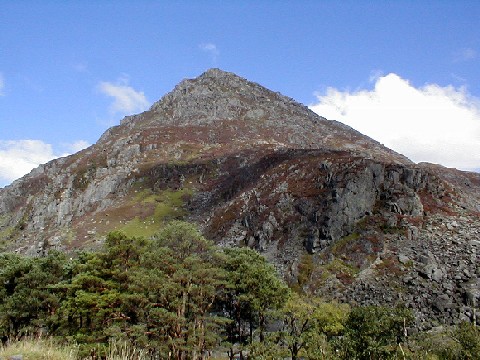It used to take my father 25 minutes in the early 1960s to commute a 20 mile train journey now taking 40 minutes. How is that?? Did fewer people work in London in those days? Did more commute into London by car, or bus?? I would find that hard to believe.
Playing with trains/ HS2 & 3
Collapse
X
-
 An_Inspector_Calls
An_Inspector_Calls
HS2 sounds like a great idea, but then . . .
Railways require subsidy to build and operate. I doubt any railway in the world manages to operate without public funding. And there are alternatives to spending £30b on a railway:- Build 1,200 miles of new motorway.
- Upgrade 3,000+ miles of existing roads
- Build the Severn barrage and 2 nukes, bringing 9 GW of reliable power to the grid.
- Build 4 new nuclear installations bringing 16 GW of reliable power to the grid.etc.
So I'm not so sure.
Comment
-
Would you be so kind as to clarify the correct pronunciation of the highlighted word above?Originally posted by Eine Alpensinfonie View PostSheffield to Penistone used to be a 16 minute journey on the electrified Manchester-Sheffield railway. Now it takes 42 minutes.
 Patriotism is supporting your country all the time, and your government when it deserves it.
Patriotism is supporting your country all the time, and your government when it deserves it.
Mark Twain.
Comment
-
-
Spelling and pronunciation indicate that this is 'proper-Cornish'Originally posted by Mr Pee View PostWould you be so kind as to clarify the correct pronunciation of the highlighted word above?

 ('By Tre, Pol and Pen...' etc
('By Tre, Pol and Pen...' etc ) In confirmation you will undoubtedly find that the ancients of the village will still place the main stress on the second syllable.
) In confirmation you will undoubtedly find that the ancients of the village will still place the main stress on the second syllable.
PS Reference to early spellings will equally undoubtedly confirm derivation from Cornish pen (head, top, end, promontory) + is (below) or possibly ys (place of) + ton (lea-land). I am most grateful to my friend Oliver J Padel for assistance. His Cornish Place Name Elements (1985, English Place Name Society) is of course an invaluable, nay essential, resource for the untangling of Yorkshire's pre-Saxon place names
PPS Pedants may dare to suggest that a place-name meaning 'promontory below lea-land' is nonsensical, but I am confident that close study of the surrounding topography, geology and agricultural history will quickly reveal a feature amply justifying this description.Last edited by LeMartinPecheur; 17-05-13, 23:47.I keep hitting the Escape key, but I'm still here!
Comment
-
-
Disappointingly, A D Mills's Dictionary of English Place Names, while confirming the first syllable's derivation from Celtic penn (hill, etc), insists on an implausibly mixed derivation via penn + OE ing + tun (farmstead), supposedly meaning 'farmstead by a hill called Penning'). There is none so blind...Originally posted by LeMartinPecheur View PostSpelling and pronunciation indicate that this is 'proper-Cornish' ('By Tre, Pol and Pen...' etc
('By Tre, Pol and Pen...' etc ) In confirmation you will undoubtedly find that the ancients of the village will still place the main stress on the second syllable.
) In confirmation you will undoubtedly find that the ancients of the village will still place the main stress on the second syllable.
PS Reference to early spellings will equally undoubtedly confirm derivation from Cornish pen (head, top, end, promontory) + is (below) or possibly ys (place of) + ton (lea-land). I am most grateful to my friend Oliver J Padel for assistance. His Cornish Place Name Elements (1985, English Place Name Society) is of course an invaluable, nay essential, resource for the untangling of Yorkshire's pre-Saxon place names
PPS Pedants may dare to suggest that a place-name meaning 'promontory below lea-land' is nonsensical, but I am confident that close study of the surrounding topography, geology and agricultural history will quickly reveal a feature amply justifying this description. I keep hitting the Escape key, but I'm still here!
I keep hitting the Escape key, but I'm still here!
Comment
-
-
 An_Inspector_Calls
An_Inspector_Calls
I find that odd. In Welsh Pen is usually the stressed part of any compound place name, such as PenyrolewenOriginally posted by LeMartinPecheur View PostIn confirmation you will undoubtedly find that the ancients of the village will still place the main stress on the second syllable.
Same applies to English pens, such as Penrith.
Comment
-
Hello AIC. Let me first say that LMP's irony-light is definitely switched OFF for this posting!Originally posted by An_Inspector_Calls View PostI find that odd. In Welsh Pen is usually the stressed part of any compound place name, such as Penyrolewen
Same applies to English pens, such as Penrith.
I quote from Craig Weatherhill's Cornish Place names and Language. CW appears to be 'proper-Cornish': he is certainly a Cornish Bard. "In general, stress is placed on the penultimate syllable of words with more than two syllable; for example, "bosWARthen" not BOSwarthen". With two syllable words, the stress is often on the second one so, for Penzance, Redruth and Liskeard, we have "p'n-ZANSS", "r'DROOTH", "l'sKARD" and not the "PEN-zanss", "RED-rooth" and LISS-kard" we hear only too often."
You may know that Tre- is nearly always very unstressed, the 'e' at best a murmur-vowel, often almost completely elided (I live near Tr'VADlock). My impression is that Pen- hasn't yet sunk so far.
I have to say as one who lives near Liskeard, very many Cornish now stress the first syllable and there is the same tendency with Redruth, but p'nZANSS may be holding up slightly better.
I'm not in any way Cornish but have always said l'sKARD, even before I moved here some ten years ago. Might have picked it up on Cornish holidays as a kid, though these were much further west.
PS Isn't Penrith generally pronounced evenly, so it's quite hard to say which is the stressed syllable?
PPS Apologies railway-lovers for taking a slightly OT post completely up a siding My deep love of trains is evidenced further up the thread! Perhaps this bit could come under a sub-heading of Correct Pronunciation of Station Names?
My deep love of trains is evidenced further up the thread! Perhaps this bit could come under a sub-heading of Correct Pronunciation of Station Names? Last edited by LeMartinPecheur; 18-05-13, 10:29.I keep hitting the Escape key, but I'm still here!
Last edited by LeMartinPecheur; 18-05-13, 10:29.I keep hitting the Escape key, but I'm still here!
Comment
-
-
Indeed, TS - and by the time all those communities that feel excluded from "regeneration" by not having their own station on the line either continue being excluded, and therefore alienated from the whole project, or added to the stops along the way, the journey will take as long as it would have done if not HS.Originally posted by teamsaint View Post
Comment
-
-
quite right S_A.
I wish this country wasn't run by **** wits.
I really do.
But it is too fracking late, i fear.Last edited by teamsaint; 26-06-13, 23:11.I will not be pushed, filed, stamped, indexed, briefed, debriefed or numbered. My life is my own.
I am not a number, I am a free man.
Comment
-


Comment